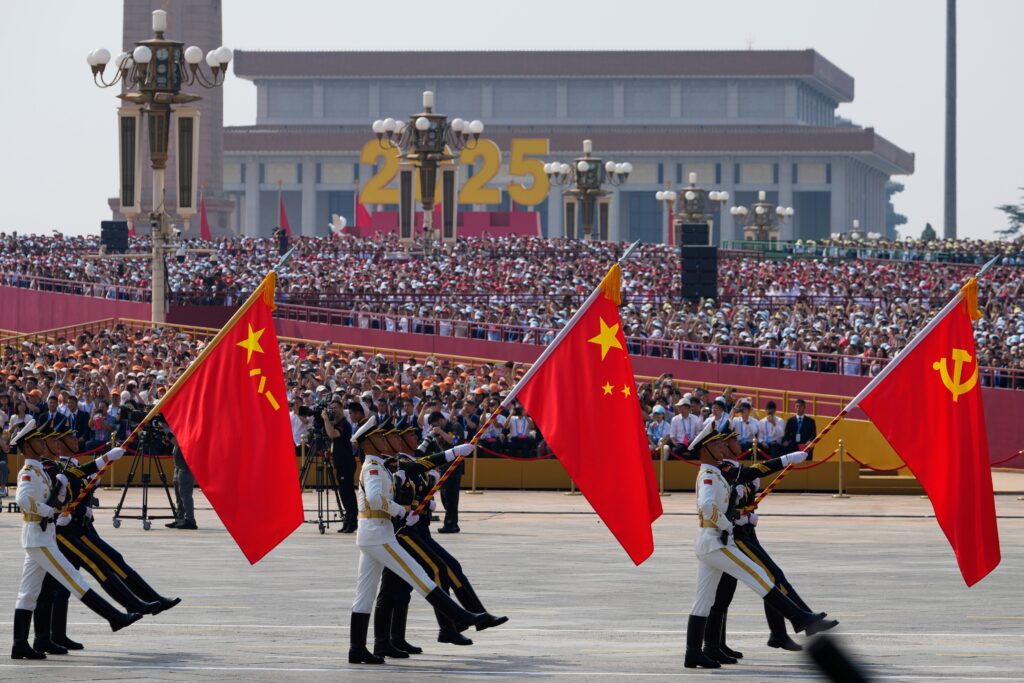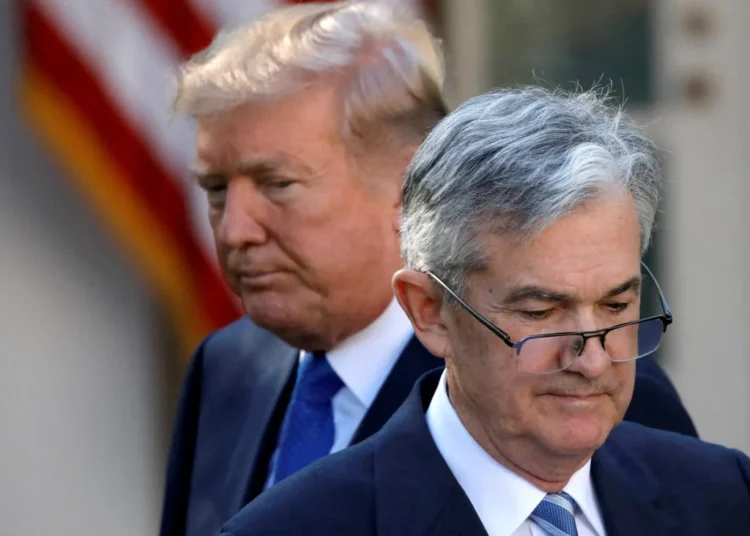An influential bipartisan congressional commission is urging lawmakers to create a new economic statecraft office to enforce U.S. sanctions, limit Chinese influence in the electrical grid, and release funding to maintain dominance in cyber and quantum technologies — warning that the national security threat from Beijing has escalated over the past year and could threaten the United States in a future conflict.
The U.S.-China Economic and Security Review Commission, which issues annual policy recommendations to Congress, warned that without action, China could seize control of vulnerable U.S. supply chains and severely weaken the U.S. military in a potential conflict.
It also urged lawmakers to increase support for vulnerable Indo-Pacific nations, including expanding the U.S. Coast Guard’s role in the region, and to require the Pentagon to clarify its actual capacity to respond to a potential invasion of Taiwan — a mission President Xi Jinping has said he wants China’s military to be capable of by 2027.
“We should be clear-eyed about the fact that Beijing is rapidly advancing its capabilities for a potential conflict,” said Committee Vice Chair Randall Schriver in a statement ahead of the report, which offered 28 recommendations to Congress, including tightening U.S. controls on AI chips, robotics and pharmaceuticals.
“Without swift and focused action, the United States could face a future where we depend on China for access to the most cutting-edge innovations in fields from medicine to robotics,” said commission chair Reva Price.
The report’s recommendations come amid ongoing instability in U.S.-China relations, roiled by President Donald Trump’s blistering tariff campaign and Beijing’s retaliatory restrictions on its rare-earths monopoly — a move that exposed a key vulnerability in Washington’s supply chain.
The findings follow the fragile détente Trump and Xi reached in South Korea last month, in which both sides agreed to de-escalate their trade war. That meeting — a prelude to a possible Trump visit to Beijing next year — excluded discussions on Taiwan and other core security issues, prompting China watchers to warn that Trump’s narrow focus on trade risks undercutting a broader national security strategy to counter Beijing’s rise.
China’s embassy in Washington did not respond to a request for comment on the commission’s findings, but is has previously described the annual reports as “disinformation” reflecting “entrenched bias” against China.
In the commission’s top proposal this year, it urged lawmakers to create a new interagency “economic statecraft entity” that makes use of intelligence from the Pentagon, Commerce, State, Treasury and other key government bodies, and reports directly to a senior Cabinet official or the president. The body would aid in negotiations with Beijing and help enforce sanctions and export controls.
“We saw this in the Biden administration, and we see it again in the Trump administration. Because of the way we’re currently organized, you essentially have like feudal states that are arguing about various elements that they control in this ecosystem,” said Michael Kuiken, one of the committee’s commissioners, who said the move would seek to eliminate “bureaucratic infighting” over the U.S. approach to restricting Chinese key technologies.
Over the past decade, the United States has imposed restrictions aimed at preventing semiconductors and advanced AI chips from reaching China’s military. But those efforts have been hampered by limited enforcement powers, which Beijing has exploited to acquire technology for critical military programs.
The commission’s advice comes after months of unorthodox American policy on high-end semiconductors — a central issue in U. S.-China export-control discussions. The Trump administration partially reversed restrictions on China’s access to Nvidia’s H100 artificial intelligence chips, previously curbed by the Commerce department in April, and reached an agreement with two leading American chipmakers allowing exports of certain semiconductors under the condition that the U.S. government receives a share of the revenue of those sales.
Commissioners warned that even if Congress adopted the recommendation, the rollout of such a body is likely to take time. “This is not something that we’d snap our fingers and all of a sudden have an entity ready to go in trade negotiations with the current administration,” said Leland Miller, a commissioner.
The commission also urged lawmakers to provide new funding to modernize the U.S. electrical grid and to ban the widespread use of Chinese-made energy storage systems with remote monitoring capabilities, warning they might be susceptible to infiltration and exploitation.
“The Volt Typhoon attack demonstrates the possibility that connected Chinese components may provide vectors for China to sabotage key portions of the bulk power and distribution systems as a means of leverage or during a conflict,” the report said, citing the 2023 large-scale cyberattack the FBI attributed to Chinese state actors that allowed hackers to infiltrate U.S. power, water and communications infrastructure.
The report took note of China’s rapid satellite deployments that could “severely limit U.S. and allied forces in their ability to respond rapidly in any theater of operations, particularly in the Indo-Pacific.” While the U.S. currently outpaces Beijing in space technology, commissioners urged lawmakers to release funds for the Space Force to “establish space superiority” and run war games simulating Chinese attacks.
The commission also called for the Pentagon and its Indo-Pacific command to be more transparent and detailed in its notifications to Congress on preparations to resist a Chinese invasion of Taiwan. “Part of the Taiwan Relations Act is that the United States must maintain the capacity to resist force, and to my knowledge, IndoPacom has never been asked to prove that,” said Schriver.
The Pentagon and White House have sent mixed signals this year on defending Taiwan in the event of a Chinese invasion.
Last week, the Pentagon approved a $330 million arms sale to Taiwan — the first under the second Trump administration — after the president rejected a $400 million military aid package in summer. Since returning to office, Trump has taken a hard line on Taiwan, accusing it of “stealing” America’s semiconductor industry and canceling meetings between senior U.S. and Taiwanese officials. He has also said that Xi assured him that China will not invade Taiwan during his presidency.
The commission’s report on Tuesday appeared to run counter to that thinking. It said that China’s recent actions in the strait — including “around-the-clock military activities” and blockades near the island mean that Beijing now has the ability to invade with “almost no advance warning,” while recent changes in its domestic propaganda on Taiwan are sending worrying signals about its intentions.
“The United States and its allies and partners can no longer assume that a Taiwan contingency is a distant possibility for which they would have ample time to prepare,” it said.
The post Congressional committee urges swift action on escalating Chinese threats
appeared first on Washington Post.




